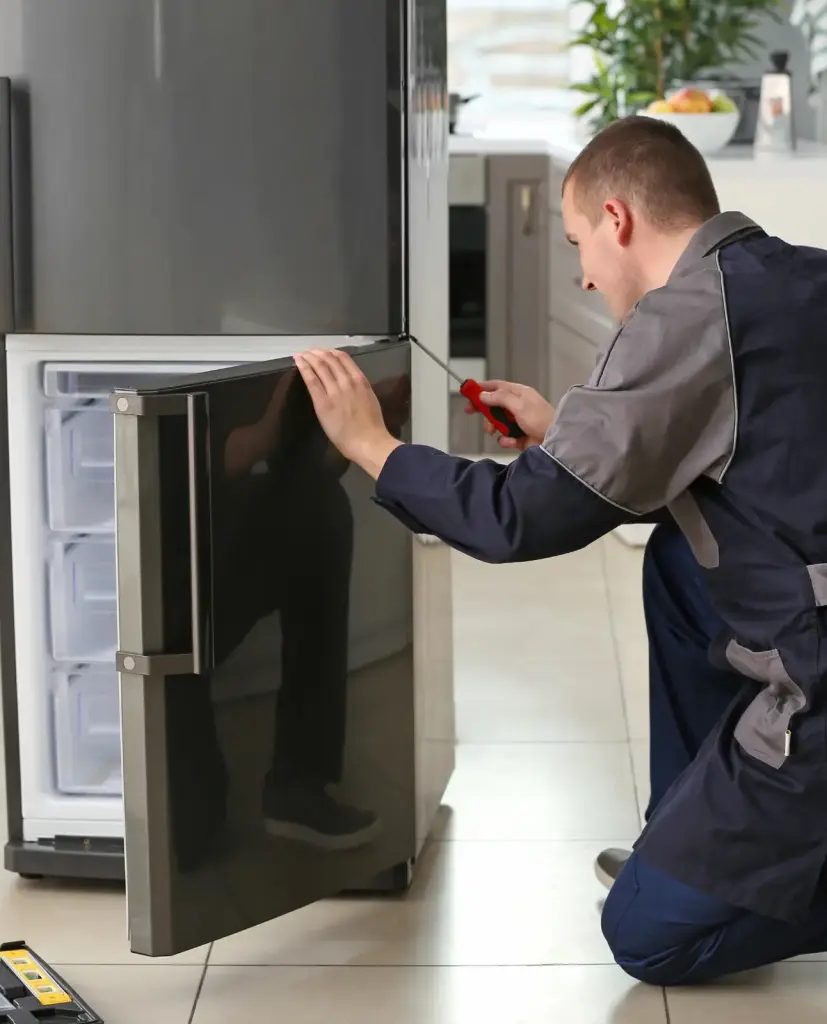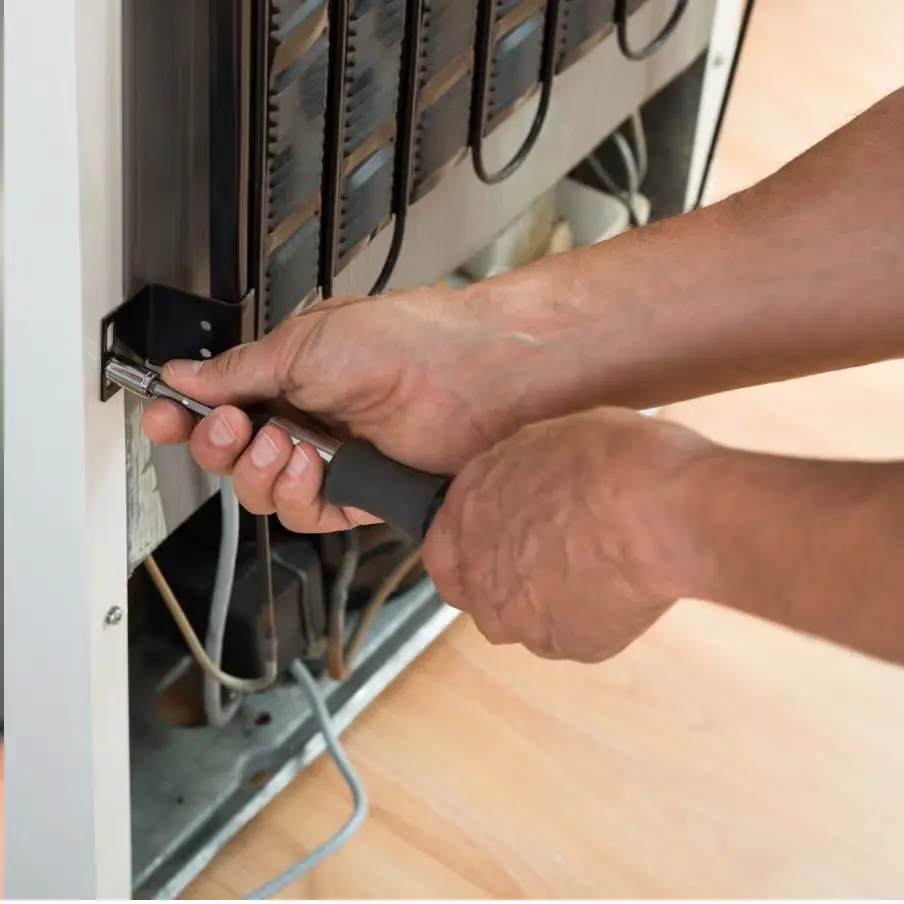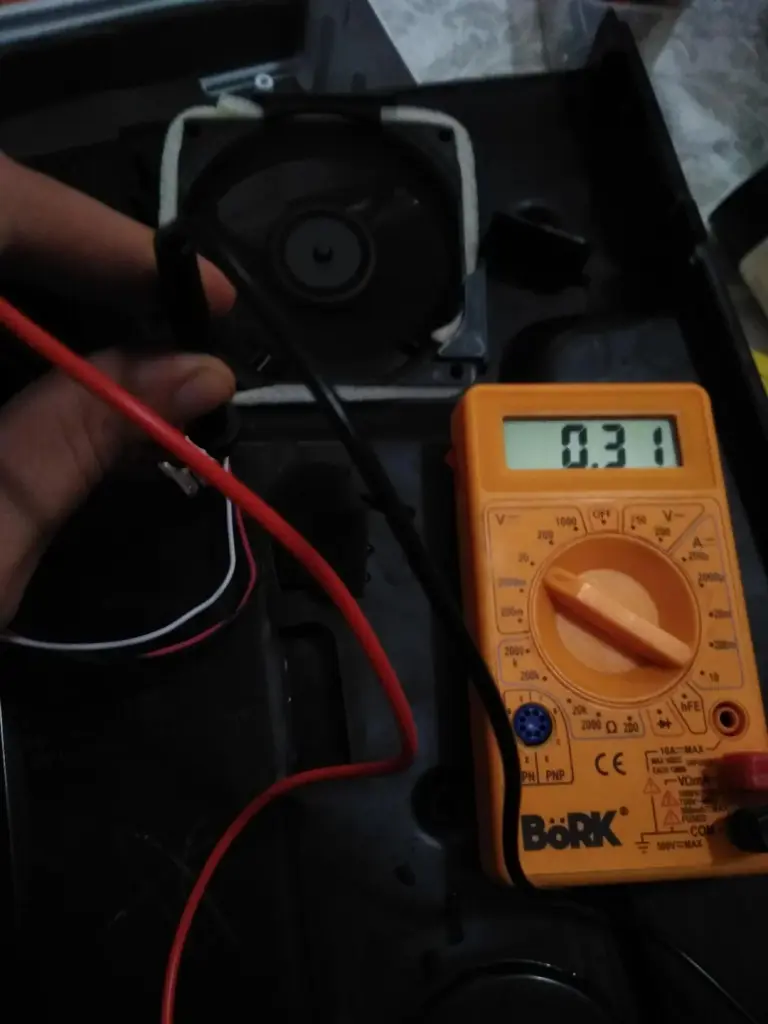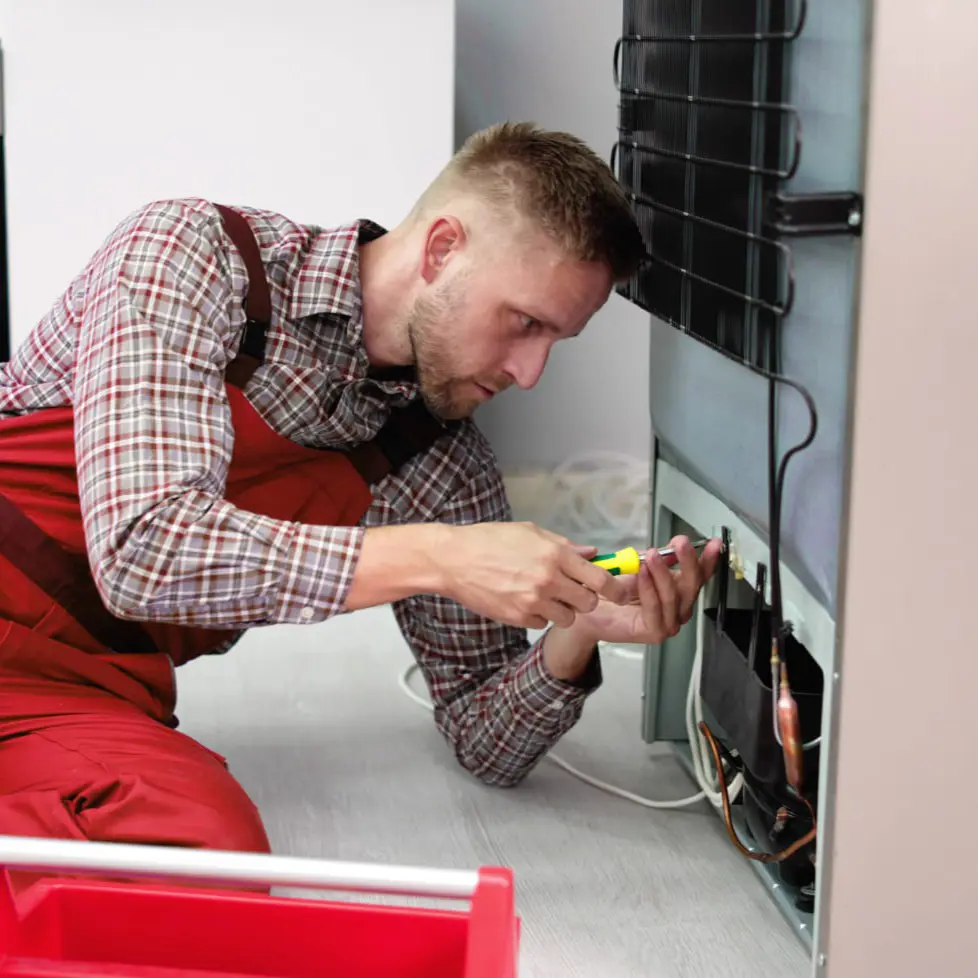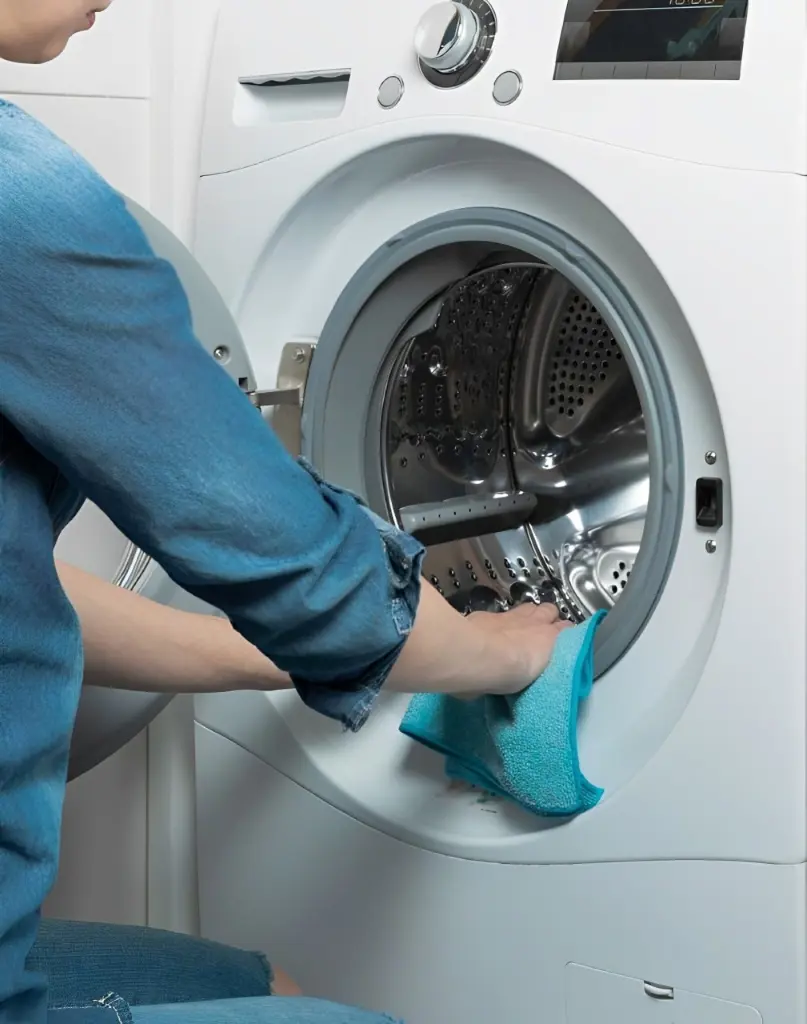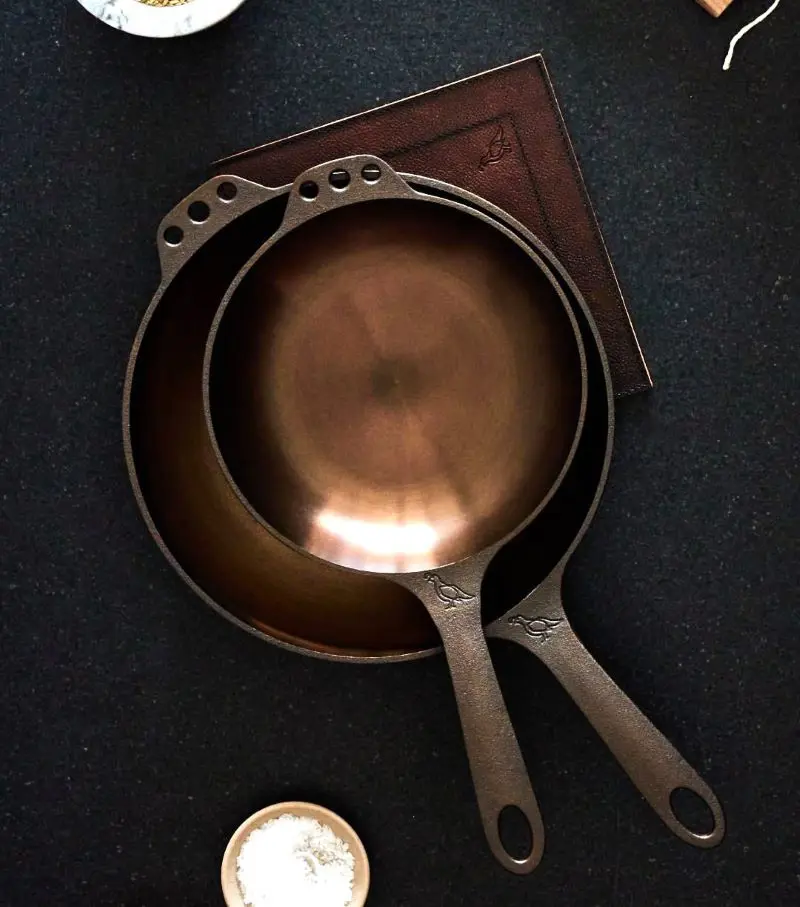Why Is My Refrigerator Making Noise?
Before diagnosing or attempting to repair your refrigerator, make sure you unplug it to avoid the risk of electric shock. If any aspect of the repair makes you feel less than confident, then it would be wise to contact an appliance repair technician.
Here are common reasons your refrigerator is making a loud noise:
1. Evaporator fan issue
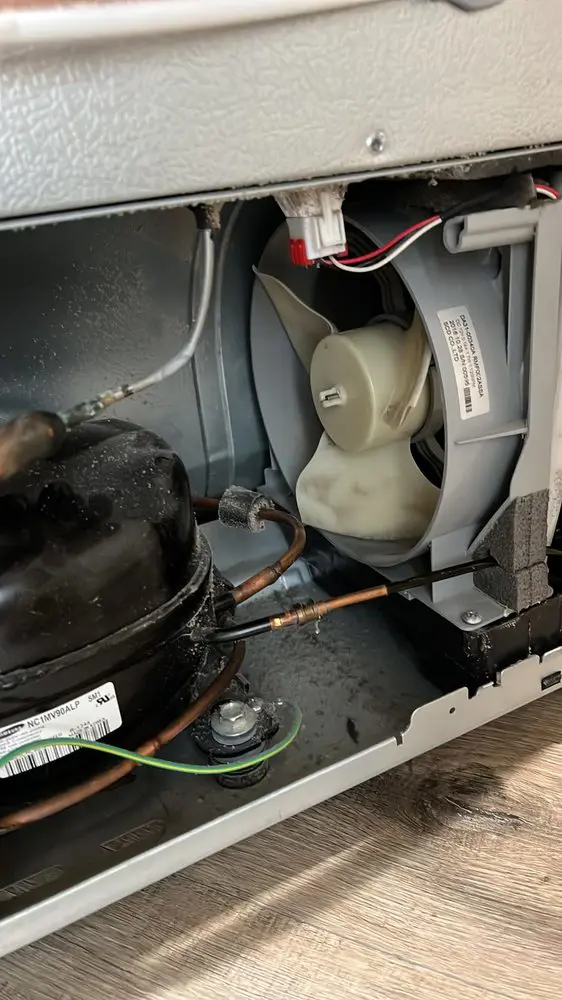
If the noise seems to originate from inside the fridge, then the problem may be related to the evaporator fan. This is usually found on the back of the freezer and behind a panel for protection.
Carefully remove this panel after having unplugged your fridge, first and see if the fan easily spins without any visible wear. Your needs might include replacement fan blades or grommets.
2. Loose drain pan
Always check under the refrigerator that the drain pan is secure, because this sometimes can be found loose, and duct tape will help secure it in place and stop any rattling noise of a vibration type.
3. Compressor problems
A loud buzzing noise, rather than a gentle hum, usually means there is something wrong with the compressor. If repair or replacement seems inevitable, clean the condenser coils and fan first to eliminate the possibility of accumulated dust/dirt as a cause for noise from the refrigerator compressor.
4. Dirty condenser fan or coils
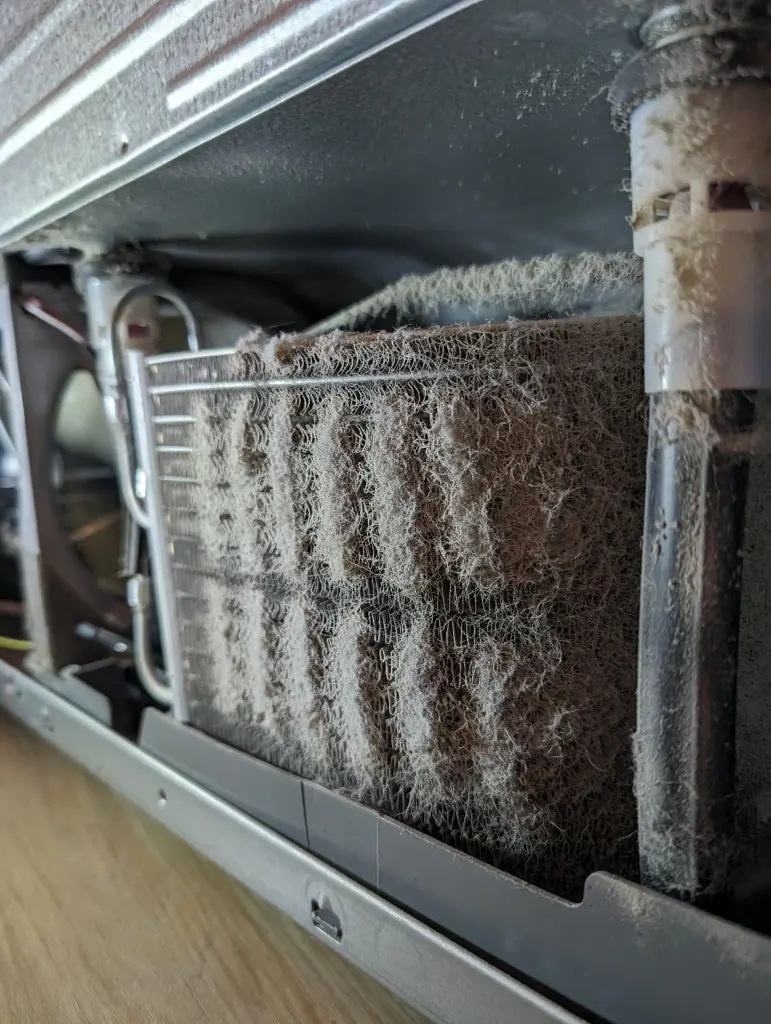
These would make the refrigerator struggle hard, resulting in those humming noises. This is preventable with regular cleaning, which is suggested twice a year, or more often when you have pets.
Most often, the condenser coils and fan are at the bottom or back of your fridge. Vacuum out dust and dirt, then wipe down the coils with a wet cloth and mild soap. Make sure all parts are dry before you plug the refrigerator in.
5. Water line issues
Other noises could be related to the water and ice dispensers in the refrigerator. Sometimes this could be due to improper water filling of the ice maker. Here, one can test the water dispenser; if it also does not work, then the malfunction is with the ice maker.
Professional help may be required as there could be numerous components to the water line system.
6. New refrigerator settling
When your fridge is new, some of these noises may be normal as the appliance settles into cold temperatures. Plastic components expand and contract and that causes creaking or humming sounds. While these sounds can be startling, they are usually nothing to be concerned about.
7. Temperature-related issues
Professionals recommend putting the temperature in your refrigerator around 40°F - 4.4°C to avoid food spoilage and the freezing of the cooling lines. When set too low, ice will form inside mechanisms, and your refrigerator works much harder and louder. Try adjusting the temperature and see if the noise has subsided.
